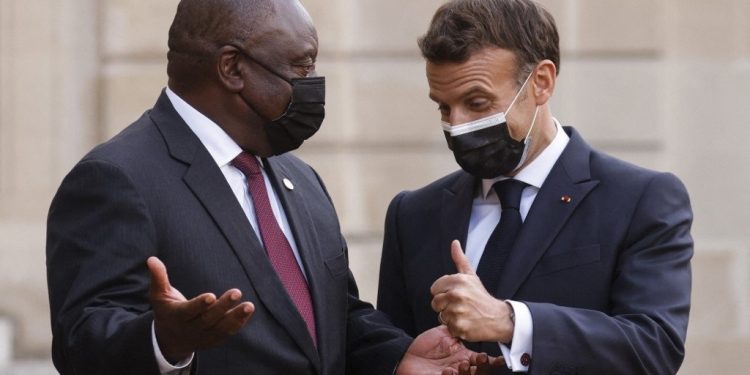South African President Cyril Ramaphosa has been identified in a leaked database at the heart of the Pegasus Project which includes cellphone numbers of government leaders including French President Emmanuel Macron, according to an investigation conducted by a reputable News Media firm.
Earlier this week the report by the Guardian revealed that one of the countries that bought or used the software is Rwanda. The latest revelations also show that Rwanda used the software to select the South African President in 2019.
The presence of a phone number in the data does not reveal whether a device was infected with Pegasus or subject to an attempted hack. However, the consortium believes the data is indicative of the potential targets NSO’s government clients identified in advance of possible surveillance attempts. In response to the Guardian investigation, a spokesperson for the Rwandan government said the country “does not use this software system … and does not possess this technical capability in any form”.
The Pegasus Project is a ground-breaking collaboration by more than 80 journalists from 17 media organizations in 10 countries coordinated by Forbidden Stories, a Paris-based media non-profit, with the technical support of Amnesty International, who conducted cutting- edge forensic tests on mobile phones to identify traces of the spyware.
“The Pegasus Project lays bare how NSO’s spyware is a weapon of choice for repressive governments seeking to silence journalists, attack activists and crush dissent, placing countless lives in peril,” said Agnès Callamard, Secretary General of Amnesty International.
“These revelations blow apart any claims by NSO that such attacks are rare and down to rogue use of their technology. While the company claims its spyware is only used for legitimate criminal and terror investigations, it’s clear its technology facilitates systemic abuse. They paint a picture of legitimacy, while profiting from widespread human rights violations.”
“Clearly, their actions pose larger questions about the wholesale lack of regulation that has created a wild west of rampant abusive targeting of activists and journalists. Until this company and the industry as a whole can show it is capable of respecting human rights, there must be an immediate moratorium on the export, sale, transfer and use of surveillance technology.”
In a written response to Forbidden Stories and its media partners, NSO Group said it “firmly denies… false claims” in the report. It wrote that the consortium’s reporting was based on “wrong assumptions” and “uncorroborated theories” and reiterated that the company was on a “life-saving mission”. A fuller summary of NSO Group’s response is available
At the centre of this investigation is NSO Group’s Pegasus spyware which, when surreptitiously installed on victims’ phones, allows an attacker complete access to the device’s messages, emails, media, microphone, camera, calls and contacts.
Over the next week, media partners of The Pegasus Project – including The Guardian, Le Monde, Süddeutsche Zeitung and The Washington Post – will run a series of stories exposing details of how world leaders, politicians, human rights activists, and journalists have been selected as potential targets of this spyware.
From the leaked data and their investigations, Forbidden Stories and its media partners identified potential NSO clients in 11 countries: Azerbaijan, Bahrain, Hungary, India, Kazakhstan, Mexico, Morocco, Rwanda, Saudi Arabia, Togo, and the United Arab Emirates (UAE).
NSO Group has not taken adequate action to stop the use of its tools for unlawful targeted surveillance of activists and journalists, despite the fact that it either knew, or arguably ought to have known, that this was taking place.















